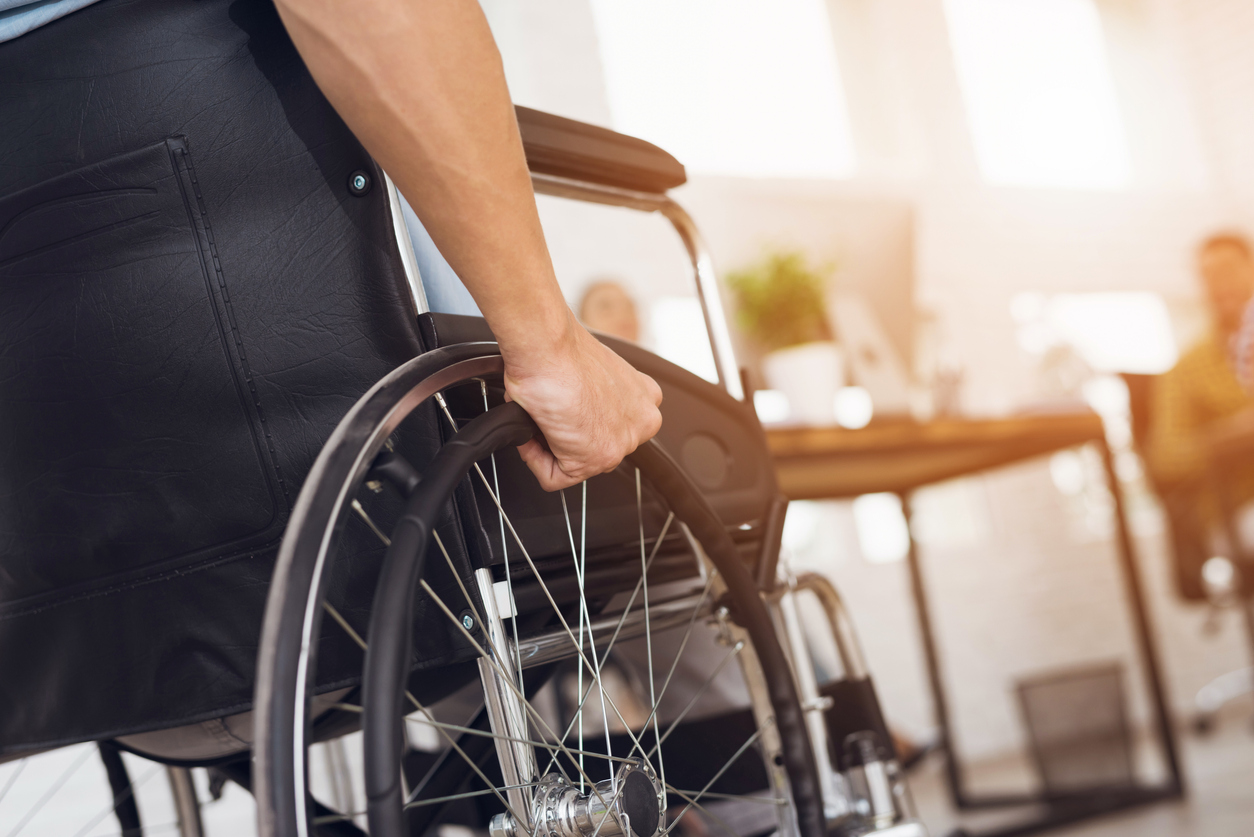Craig Rosenbaum | March 1, 2024 | Personal Injury

A significant percentage of people in the United States are living with a disability, including in New York. Navigating life with a disability brings unique challenges and requires immense resilience. Fortunately, there are several programs that provide disability benefits, including medical care and disability income.
The two federal disability programs are Social Security Disability Insurance (SSDI) and Supplemental Security Income (SSI). The former is based on work history, and the latter is a need-based program. Disabled New Yorkers may also receive benefits through workers’ compensation, Veterans Affairs (VA), and private insurance policies.
There were nearly 11 million disabled people and their dependents receiving SSDI benefits in 2022, and 7.5 million receiving SSI benefits. Nearly 388,000 SSDI recipients also applied for workers’ comp or public disability benefits that year. The average SSDI benefit is $1,341, while the average SSI benefit is $622 per month.
Below are the ten most common disabilities according to the 2022 SSDI Annual Statistical Report.
Musculoskeletal Disorders
Musculoskeletal disorders impact the bones, joints, and muscles, leading to pain and limited mobility. This category is the most common cause of disability, accounting for 30.1% of SSDI recipients. It includes conditions like:
- Arthritis
- Chronic back pain
- Neck pain
- Severe burns
- Complex and non-healing fractures
- Amputation
- Ruptured discs and degenerative disc disease
- Ankylosing spondylitis
Musculoskeletal disorders are the top cause of work-related disability in the U.S. They account for almost 66% of workers’ compensation claims. When work-related, these disorders can be caused by repetitive strain or an acute injury suffered in a fall or other accident.
Depressive Disorders
Depressive disorders affect 9.5% of the U.S. adult population annually. For some, depression is a disabling and treatment-resistant condition that often co-occurs with other health issues. Depressive conditions include:
- Major depressive disorder (major depression)
- Type I and type II bipolar disorder
- Persistent depressive disorder (dysthymia)
- Cyclothymic disorder
About 12% of SSDI recipients have depression, bipolar disorder, or a related condition.
Nervous System and Sense Organ Disorders
The third leading cause of disability is conditions affecting the nervous system and sense organs like the tongue, nose, ears, eyes, and skin. Just over 10% of SSDI beneficiaries have one of these disorders such as:
- Neuralgia (nerve pain)
- Multiple sclerosis (MS)
- Spinal cord injuries
- Bell’s palsy
- Cerebral palsy
- Hearing or vision loss
- Epilepsy
Nervous system disorders can be caused by infection, or they may be functional, structural, or degenerative conditions.
Intellectual Disorders
Intellectual disabilities impact cognitive abilities and adaptive behavior. These conditions present challenges in learning, reasoning, and problem-solving. They are usually present at birth.
Common intellectual disorders are:
- Down syndrome
- Prader-Willi syndrome (PWS)
- Fragile X Syndrome (FXS)
These disorders affect around 9% of SSDI beneficiaries.
Cardiovascular Disorders
Circulatory or cardiovascular disorders affect the veins and arteries. These conditions impact the body’s ability to remove waste and deliver nutrients and oxygen. Common examples include:
- Heart attack
- Stroke
- Heart failure
- Coronary and peripheral artery disease (CAD and PAD)
- Atherosclerosis
- High blood pressure or cholesterol
- Dysrhythmia or arrhythmia
Cardiovascular disease is the primary disability of 6.7% of SSDI recipients.
Psychotic Disorders
Psychotic disorders are responsible for 4.7% of SSDI disability cases. Common forms include schizophrenia, psychotic depression, and schizoaffective disorder. They are characterized by altered thinking and awareness of reality.
Other Mental Disorders
Aside from depressive and psychotic conditions, other mental disorders are the main disability for 4.5% of SSDI recipients. Examples include:
- Post-traumatic stress disorder (PTSD)
- Eating disorders
- Obsessive-compulsive disorder (OCD)
- Anxiety disorders like generalized anxiety disorder
These disorders can have a severe impact on every aspect of life.
Injuries
Traumatic or catastrophic injuries from accidents can lead to disabilities. An injury is responsible for 3.4% of SSDI cases. Common disabling injuries include:
- Neck injuries
- Back injuries
- Traumatic brain injuries (TBI)
- Amputation
- Spinal cord injuries
- Severe burns
- Eye injuries
Injuries are the second leading cause of disability for men filing for workers’ comp. In 2022, more than 6% of all workers’ compensation claims were prompted by an injury.
Tumors (Neoplasms)
Neoplasms or tumors are the reason for just over 3% of SSDI cases and 1.3% of workers’ comp claims. Most disabling tumors are malignant or cancerous, but benign brain tumors can be disabling. This category includes lung cancer, mesothelioma, ovarian cancer, skin cancer, lymphoma, and more.
Work-related cancer is usually linked to toxic exposure. Construction workers and trades workers like welders and carpenters are at the highest risk.
Neurocognitive Disorders (Dementia)
Dementia and related neurocognitive disorders account for 3% of SSDI disabilities. Dementia impacts memory, critical thinking abilities, visual processing, motor control, and more.
About 70% of major neurocognitive disorders (MNDs) are Alzheimer’s disease. Lewy body disease and vascular dementia are other common types of dementia. Dementia may also be the result of a brain injury, MS, Huntington’s disease, and Parkinson’s disease.
Sadly, many people in New York are living with a disability caused by a single life-changing accident or work-related illness. Social Security benefits and workers’ compensation offer much-needed compensation. However, benefits are capped. These programs do not compensate for reduced quality of life, pain, suffering, and anguish.
Get in Touch With an Experienced NYC Personal Injury Lawyer
If your disability was caused by an accident, you may have additional avenues to recover the compensation you deserve. Contact Rosenbaum & Rosenbaum, P.C. to schedule a free initial consultation with a New York personal injury lawyer today. We will help you understand your options and what we can do to help.
If you’ve been injured in an accident in Manhattan, NY, and need legal help, contact our New York City personal injury lawyers at Rosenbaum & Rosenbaum, P.C. to schedule a free consultation.
Rosenbaum & Rosenbaum, P.C.
100 Wall St 15th Floor
New York, NY 10005
(212) 514-5007
